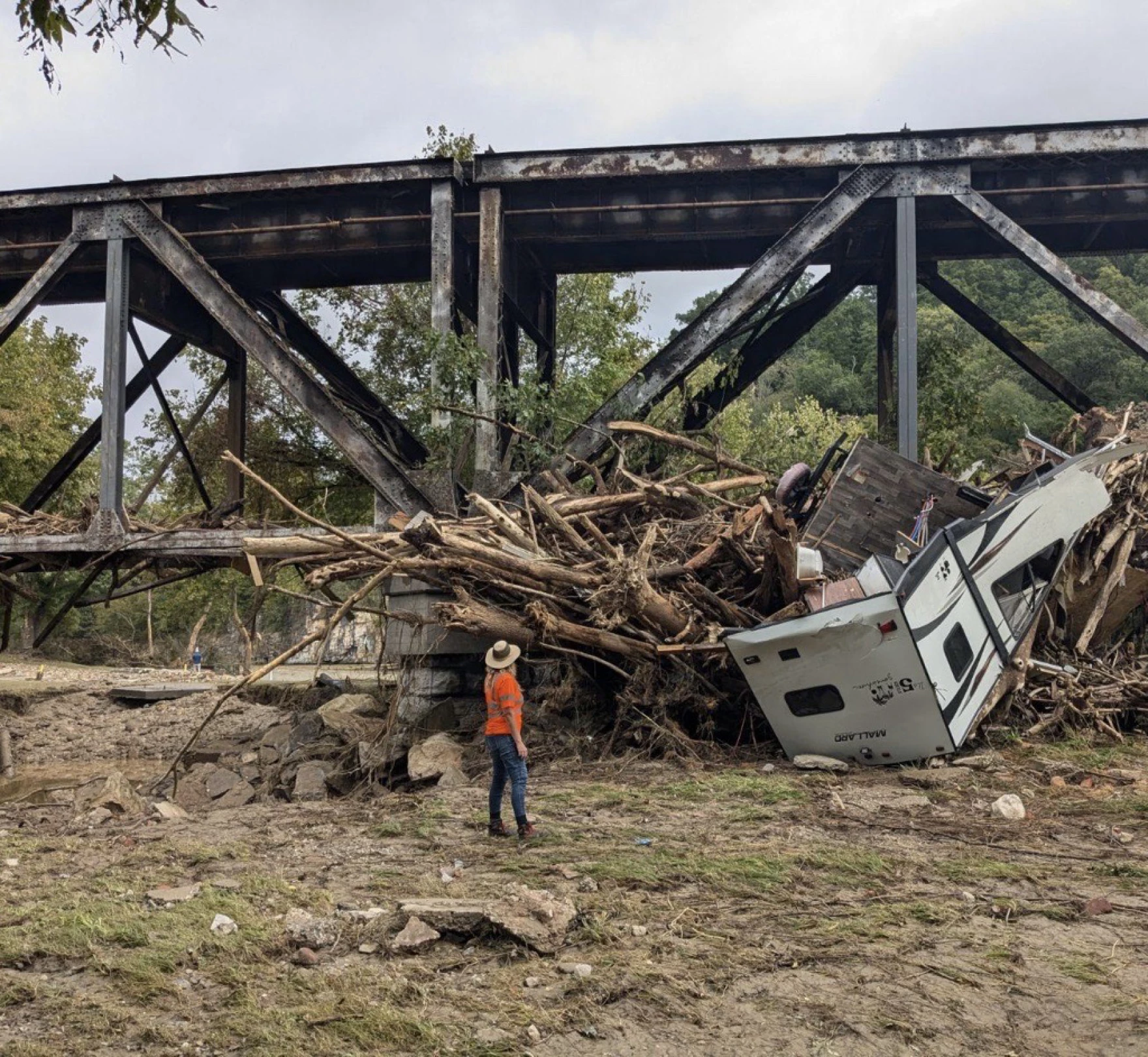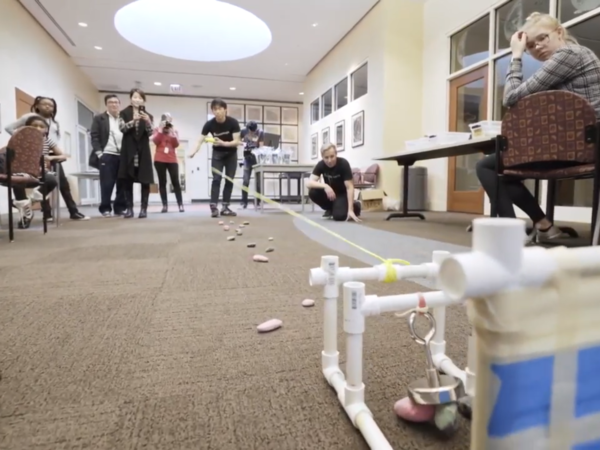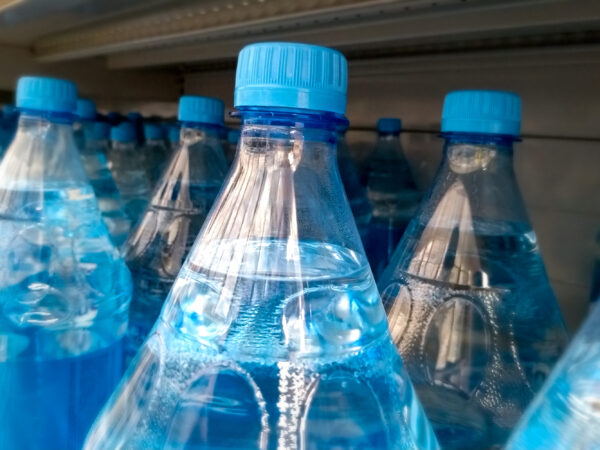
By Izzy Ross, Interlochen Public Radio
This coverage is made possible through a partnership with IPR and Grist, a nonprofit independent media organization dedicated to telling stories of climate solutions and a just future.
Hurricane Milton made landfall last week in Florida, even as communities across the southeast are still reeling from Hurricane Helene.
This hurricane season has been devastating and deadly. It has destroyed homes and infrastructure across the region, and has left millions of people without power.
Organizations in northern Michigan have been sending people to assist with relief efforts. Line workers from Traverse City Light and Power are heading to Florida to help crews there restore power after Hurricane Milton. Four volunteers from the northern Michigan chapter are among dozens Red Cross Michigan has sent to areas impacted by the hurricanes so far.
How best to help
After large-scale disasters like hurricanes, one of the most effective ways to help is to donate money to a reputable organization.
“Always go with [an organization] that you know and that you’ve heard of before,” said Michelle Gallagher, the executive director of the northern Michigan Red Cross.
Gallagher said to watch out for scams and to research before donating.
“Don’t just give people money over the phone,” she said. “Don’t give credit card numbers over the phone and that sort of thing. Do a little research first, make sure that it’s a legitimate organization.”
A few places to start:
- The website Charity Navigator is one way to verify that an organization is legitimate.
- The American Red Cross Michigan Region says three good ways to help are to volunteer, donate blood and donate money.
- The Washington Post has a rundown of charities that are providing assistance to Florida and other states.
- Blue Ridge Public Radio has directions and resources for the best ways to help people in Western North Carolina.
- The Federal Emergency Management Agency has guidelines and recommendations for how to help after disasters.
As folks in northern Michigan consider how else to help those affected by the storms, Gallagher recommended contacting organizations in the affected regions to find out what’s needed, and to think about where it will go and how it will get there.
“Call some of the larger nonprofits that may have offices there, or do a little research and find out what kind of nonprofits that are in that local area,” she said. “If it’s Asheville that you want to donate to, or somewhere in Florida or Tennessee, just do a little research first and find out what’s actually needed.”
FEMA also recommends donating money, which can be used for specific needs. It says people donating items should connect with organizations on the ground, since sending things to a hurricane zone without a plan is not helpful, and may hinder relief efforts.
Watch out for rumors
Rumors, disinformation and conspiracy theories tend to spring up in the wake of major disasters, so it’s important to verify information about what’s happening.
Gallagher said people can contact organizations like the Red Cross for more information. FEMA also has a rumor response page.
“I can’t say it enough: Just don’t always believe everything that you see on the internet or hear on the internet,” she said. “Look it up and fact check it yourself, or call us.”
Gallagher is flying to Florida on Friday to work at a Red Cross shelter there.
“We can tell you exactly what we’re doing and where we’re at,” she said. “I can assure you that everybody is doing everything that they can to help and to get assistance to people that need it.”
Catch more news at Great Lakes Now:
Michigan hopes community groups can get piece of $2B climate justice fund
Featured image: USGS Hydrologic Technician Pamela Loftin looks on at the aftermath of severe flooding on Pigeon River in Newport, Tennessee. USGS crews were onsite October 1 to measure high-water marks to determine how high the flood waters reached at this location. (Photo: Logan Combs/USGS)




